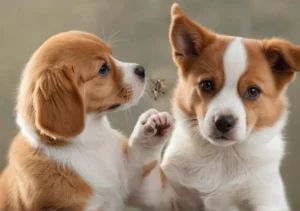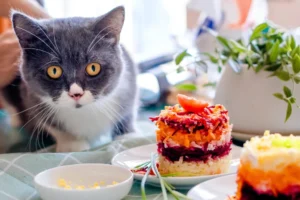Have you ever noticed your cat making a strange spitting noise when playing? It can be a surprising sound to hear coming from your furry friend, but there’s usually a simple explanation behind it. In this blog post, we’ll explore why cats make this noise and what it may signify.
Why Does My Cat Make a Spitting Noise When Playing?
Feline Communication Signals
Cats are mysterious creatures known for their unique and sometimes puzzling behaviors. One of the ways they communicate is through a variety of vocalizations, body language, and even spitting noises. While spitting may seem aggressive or alarming, it’s important to understand that cats use this sound in different contexts, including during play.
When cats play, they may make a spitting noise as a way to show excitement or arousal. This sound is often accompanied by other playful behaviors like pouncing, chasing, and batting at objects. It’s their way of expressing their enjoyment and engagement in the game, similar to how a human might shout or laugh during a fun activity.
In the wild, cats use vocalizations like spitting to communicate with each other during play or social interactions. It can signal a desire to play, establish boundaries, or simply express their emotions. So, when your cat makes a spitting noise during playtime, it’s likely just their way of saying, “I’m having fun!”
If you’re ever unsure about your cat’s behavior, always observe their overall body language and context to get a better understanding of what they’re trying to communicate. Remember, cats have their own unique ways of expressing themselves, and it’s all part of their fascinating behavior.
For more information on feline communication signals, you can check out this resource from the American Association of Feline Practitioners: Understanding Feline Body Language.
Play Behavior in Cats
Play is an essential part of a cat’s life, helping them stay physically and mentally stimulated. During playtime, cats interact with their environment in various ways, including chasing, hunting, and exploring. It’s a way for them to release pent-up energy, hone their hunting skills, and engage their natural instincts.
When cats make a spitting noise while playing, it can be a sign of heightened excitement or intensity. Just like how humans might yell or squeal when excited, cats may produce vocalizations like spitting to show their enthusiasm. It’s all part of the fun and games for them.
As cat owners, it’s essential to provide plenty of opportunities for play and enrichment to keep your furry friend happy and healthy. Interactive toys, climbing structures, and puzzle feeders are great ways to encourage play and stimulate your cat’s mind. And when your cat starts spitting during playtime, take it as a sign that they’re thoroughly enjoying themselves!
Remember, every cat is unique, so pay attention to your own cat’s preferences and behaviors to tailor their playtime to suit their individual needs and interests. And most importantly, have fun bonding with your feline friend through play and laughter.
Protective Instincts
Have you ever noticed your cat making a spitting noise during playtime? It might be a sign of their protective instincts kicking in. Cats are naturally territorial animals, and when engaging in rough play or feeling threatened, they often exhibit this behavior to ward off potential threats. The spitting noise can be a way for your cat to assert dominance or signal to their playmate that they are crossing a line. By mimicking the sound of a hissing snake or other aggressive animals, cats use this vocalization as a warning sign to protect themselves and establish boundaries.
Mimicking Prey Behavior
When your cat makes a spitting noise while playing, it could be their way of mimicking the sounds of their prey. In the wild, cats rely on stealth and surprise to catch their unsuspecting prey. By incorporating the spitting noise into their play behaviors, they enhance their predatory instincts and make the play session more engaging. This behavior allows them to simulate the stalking and hunting process, making playtime more exciting and fulfilling for them.
Additional Insight:
In addition to mimicking prey behavior, the spitting noise can also serve as a form of communication between cats. When two cats are engaged in play, the spitting noise can signal excitement, intimidation, or simply an invitation to continue the game. This vocalization helps them establish a shared language and strengthen their bond through interactive play. So next time you hear your cat making that distinctive spitting noise, remember that it’s not just play—it’s a form of communication and connection between them.
Socialization and Training
When your cat makes a spitting noise during play, it could be their way of communicating excitement and engagement. Cats often use vocalizations like hissing, growling, and spitting to express their emotions, even during play. This behavior is usually seen more often in younger cats as they are still learning social cues and proper behavior through play interactions with others.
To help your cat socialize and learn appropriate behavior during playtime, it’s essential to provide positive reinforcement when they exhibit desirable actions. Use treats, toys, and praise to reward good behavior, such as gentle play and appropriate interactions with other pets or family members. Over time, your cat will start to understand which behaviors are acceptable and which are not, leading to a decrease in spitting noises during play.
Remember, patience is key when training your cat. Consistent positive reinforcement and gentle redirection of undesirable behaviors will help your furry friend learn and grow in their social skills. As they continue to develop, you may notice a decrease in spitting noises and an increase in positive interactions during playtime.
Addressing Undesirable Behaviors
If your cat is making excessive spitting noises during play that are causing concern, it’s important to address these behaviors promptly. One useful tip is to redirect your cat’s focus during play whenever they start to exhibit spitting behaviors. Offer a different toy or engage them in a different activity to help shift their attention away from the behavior you want to discourage.
Additionally, using positive reinforcement techniques can be effective in addressing unwanted spitting noises. When your cat engages in play without spitting, be sure to reward them with treats, pets, or verbal praise. This positive feedback will help reinforce good behaviors and discourage the spitting behavior over time.
Remember, consistency is key when addressing undesirable behaviors in cats. By providing clear boundaries, redirection, and positive reinforcement, you can help guide your cat towards more appropriate play interactions and reduce or eliminate spitting noises altogether. Remember to always be patient and understanding as you work with your feline companion to improve their behavior.
Understanding Your Cat’s Needs
When your cat makes a spitting noise during play, it could be a natural behavior expressing excitement or even frustration. Cats often make this noise when they are in a heightened state of playfulness or anticipation of catching their “prey.” It’s their way of showing enthusiasm and engaging in the interactive activity.
Moreover, some cats may produce a spitting sound as a play tactic. It can mimic the noises they would make if they were hunting in the wild. So, next time your feline friend starts spitting during playtime, rest assured it’s likely just a way for them to have fun and indulge in their natural instincts.
Remember, each cat is unique, and understanding your cat’s individual preferences and behaviors is crucial for building a strong relationship with them. If you notice excessive or concerning spitting noises during play, it’s always best to consult your veterinarian to rule out any underlying health issues and ensure your cat’s well-being.
Additional Tip:
- Engage in interactive play with your cat regularly to provide mental stimulation and physical exercise, reducing the likelihood of excessive spitting behavior.
Would you like to learn more about cat behavior and communication? Check out this helpful resource for valuable insights.
Alex, a passionate animal lover, has experience in training and understanding animal behavior. As a proud pet parent to two dogs and three cats, he founded AnimalReport.net to share insights from animal experts and expand his knowledge of the animal kingdom.




